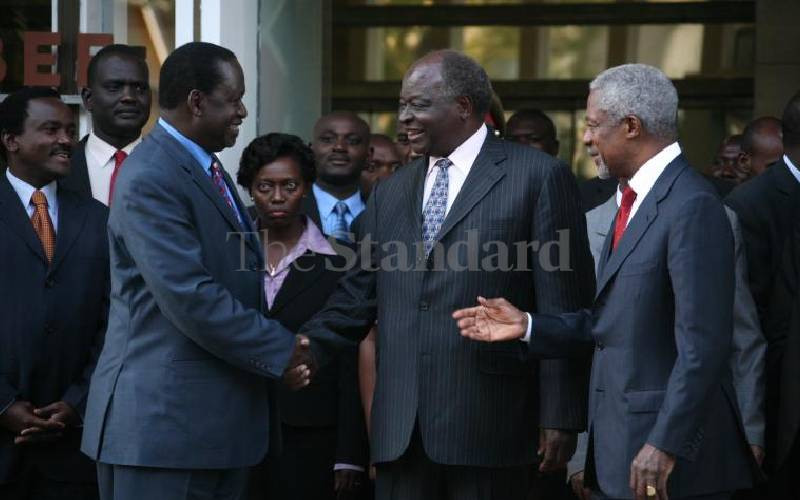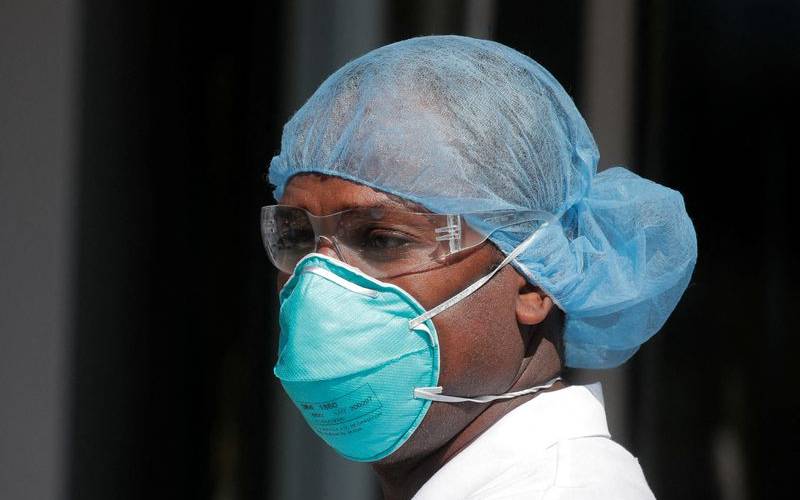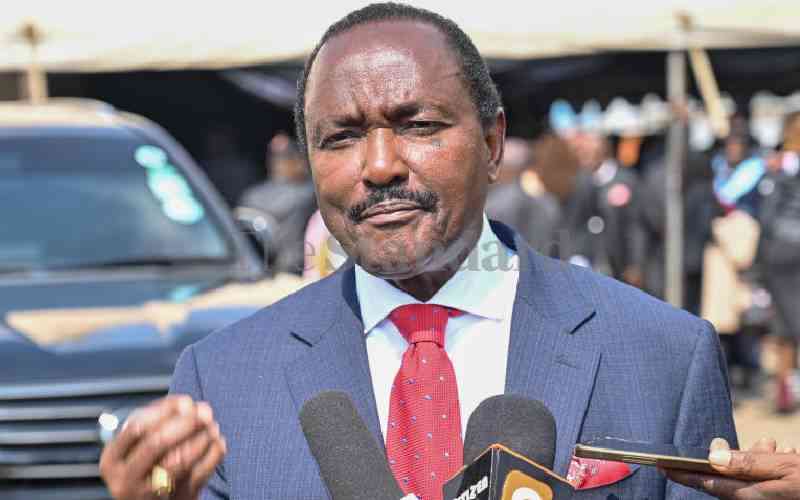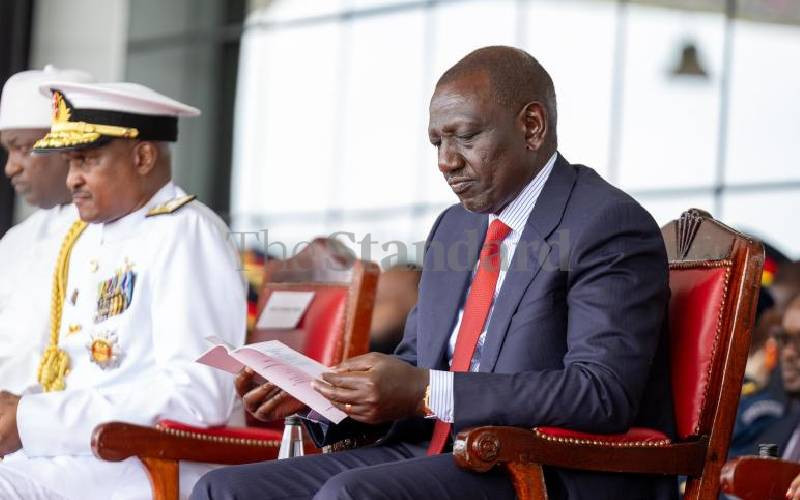Lorem ipsum dolor sit amet adipisicing elit. Sapiente fuga nisi rerum iusto intro.
Lorem ipsum dolor sit amet adipisicing elit. Sapiente fuga nisi rerum iusto intro.


In her spirited defence of President Mwai Kibaki’s votes in 2007, Martha Karua fired on all cylinders.
After securing her Gichugu parliamentary seat, she walked to the National Tallying Centre at the Kenyatta International Convention Centre (KICC) to find a strong ODM brigade led by current President William Ruto running the show.
For days and nights without sleep, she staked out for Kibaki until he was controversially pronounced the winner. Over the mediation period, Karua separately told off former US Assistant Secretary of State Jendayi Frazer and her boss Condoleezza Rice for their condescending approach to Kibaki.
Despite leading Kibaki’s side of the negotiations, Karua was kept in the dark about the deal Kibaki reached with Raila Odinga, until it was pronounced on the steps of Harambee House.
And when it came to sharing the spoils of the National Accord, she was sidestepped for a newcomer, Uhuru Kenyatta, who was appointed Deputy Prime Minister, and eventually became Kenya’s third President.
In this final installment of “Against the Tide” Martha Karua opens up about the dramatic events surrounding Kibaki’s swift swearing-in during the contested 2007 elections, her relentless support for the late President, as well as ensuing frustrations in discharging her mandate as Minister of Justice and Constitutional Affairs leading to her resignation.
At 4pm on December 28, 2007, I was declared the winner of the Gichugu parliamentary seat and was duly issued with my election certificate.
I left for Nairobi the following morning after a good night’s rest, dropped off family members, whom I had travelled with at my house, before proceeding to State House.
I found several of my colleagues following the tallying of the presidential votes on television. I went to the President’s office and after a brief chat with him, I excused myself to go to KICC.
On my way out, I asked some of my colleagues to accompany me to KICC to act as the President’s agents. Mr Uhuru Kenyatta whose party, Kanu had ditched ODM to become part of the PNU Coalition and Mr Amos Kimunya, the MP and a former Finance Minister, left State House with me.
However, when we reached the Hotel InterContinental, off Uhuru Highway, they both excused themselves, saying they had a meeting and would join me later. They did not show up until about midday the following day, by which time I had already been joined first by Mr Mungatana and later other MPs whose elections had been confirmed.
It is difficult to describe the scene that I found at KICC. The tallying hall was packed with Mr Odinga’s supporters. Raila was leading in the vote tally by a margin of close to a million votes.
There was little or no visible presence of President Kibaki’s agents except for Mr George Nyamweya. The tallying hall was chaotic. Mr Kivuitu, the chairman of the Electoral Commission of Kenya (ECK), was under intense pressure from ODM supporters to announce the results without waiting for the tallying to be complete.
The votes from the Mt Kenya region had not been tallied, yet this was President Kibaki’s stronghold, which had over two million votes. The ODM team argued that President Kibaki’s win in 2002 had been declared before all votes had been tallied.
I reminded them that although this was true, only a few constituencies remained when Kibaki was declared winner in 2002, and their total votes would not have affected the outcome.
In the case, a sizable number of votes from the Mt Kenya vote basket estimated at 2.1 million had not come in, and if favourable to Kibaki, they would make a difference to the one million votes lead that Mr Odinga had at the time.
I was articulating PNU’s case alone whereas ODM had many generals, including Mr Ruto, Mr Orengo, Prof Anyang Nyong’o and Mrs Ngilu, not to mention scores of rowdy supporters who had filled up the entire hall and shouted and jeered as I made my case.
I stood my ground and stated unequivocally that the election would be won by the ballot, not by shouting. At some point, Mr Kivuitu wondered why I was the lone voice for PNU; though Mr Nyamwea was present, but remained quiet. My answer was that I was equal to the task. I was protecting not just Kibaki’s votes, but also my own, having voted for him.
The ODM team demanded a partial re-tally of some results, a move that I opposed, counter-demanding a re-tally of all the 210 constituencies. Pandemonium ensued, and we had to all leave the hall under heavy police escort.

When we converged again after calm had been restored, a re-tally of all the constituencies was agreed upon. We had to stay overnight to accomplish this. Mr Nyamweya was with me to witness the overnight tally on behalf of President Kibaki, while Mr Orengo and Mr Karoli Omondi witnessed the same on behalf of Mr Odinga.
There were many irregularities, among them the votes of Kasipul Kabondo Constituency, whose total ballots exceeded the registered voters. However, the most memorable one was the result for the Chepalungu Constituency, which had been recorded as 337,000 votes, a figure higher than the entire population of the constituency at that time.
The votes had been credited to Mr Odinga. When I raised the issue, the electoral officials attributed the inflated figure to a typographical error and then brought a handwritten sheet showing the correct tally as 37,000 votes.
We completed the tally of all the 210 constituency votes at dawn, but Mr Kivuitu informed us that he was still waiting for some physical results that were yet to arrive. We all waited without going out to freshen up despite having spent the night at KICC. We were eager to close the tally and have the winner announced.
I remember that at one point, Mr Ruto walked into the tallying hall with a bundle of documents, mainly copies, which he claimed were results from all 210 constituencies. He invited Mr Kivuitu to rely on that bundle to close the tally.
Team Kibaki outrightly rejected his proposal. After a long wait, all the physical returns came in, and it was time for the big announcement. However, the chaotic situation in the hall could not allow Mr Kivuitu to make the announcement. The commissioners left the hall under tight police security. We followed suit almost immediately.
I headed for State House from where, at about 4.00pm, I heard Mr Kivuitu announce over the radio that President Kibaki had won. I drove back to KICC with Mr Kiunjuri, an assistant minister at the time, to collect President Kibaki’s certificate.
As we walked in, we met Mr Kivuitu leaving for State House to personally deliver the certificate to the President. We all trooped back to State House.
By this time, preparations for the swearing-in ceremony were already in progress at the State House. We were all aware of the looming constitutional crisis. President Kibaki’s five-year mandate was due to expire at midnight on December 29, 2007.
He needed to be sworn in immediately to avert a power vacuum. The ceremony started at about 5.00pm and ended with a cocktail that went on beyond 6.00pm. I left the State House after the swearing-in ceremony. I badly needed to sleep.
The following morning, I woke up to the news of waves of violence in some parts of the country, mainly in the ODM strongholds. By morning, Kenya was burning, and the violence would go on without relenting over the next few weeks, during which time many Kenyans needlessly lost their lives.
When President Kibaki appointed half the Cabinet after his swearing-in, I found it curious at the time. In hindsight, I realised he was leaving room for negotiations and the inclusion of ODM.
This was even before the eminent African personalities arrived, and Kofi Annan took charge. Before the Annan talks started, Ms Jendayi Frazer, then the US Assistant Secretary of State for African Affairs, and the then-US Ambassador to Kenya, Mr Michael Ranneberger, visited State House to meet President Kibaki.
I attended a meeting during which the tone of Ms Frazer was disturbing. She was literally talking down to President Kibaki, which I found both distasteful and disrespectful.
I interjected, telling her that if she had a message from her president, she needed to deliver it without further ado and in a tone that recognised she was addressing a Head of State. I pointed out to her that as an Assistant Secretary of State, she was the equivalent of an assistant minister in Kenya and, therefore, my junior. The meeting ended abruptly after this.
Towards the tail end of the mediation talks, US Secretary of State Condoleezza Rice flew into the country. She, like Ms Frazer before her, came with the attitude of someone in charge and out to give directives.
In a meeting attended by President Kibaki, Mr Mutula Kilonzo, Attorney General Wako and myself, Ms Rice was shooting questions at us non-stop. My colleagues, Mr Wako and Mr Kilonzo, engaged her while I remained silent, watching the unfolding drama. President Kibaki maintained a studious silence as always. After a while, Ms Rice suddenly turned to me saying,
“I wanna hear from you”.
Her tone and demeanour were that of a superior to a junior, which I found unacceptable and called her out for assailing our dignity. We had a brief exchange of verbal fire, after which she turned to the President stating matter of factly; “You know Mr President, you never won”.
President Kibaki, who had all along sat quietly, roared like a lion, stopping her in her tracks.
“Do not utter any further word,” he told her. He unequivocally disagreed with her and gave his reasons. He then suddenly rose from his seat and declared the meeting over. Ms Rice rose too and moved towards President Kibaki, apologising, but he was done. That was the end of the meeting.

Throughout the negotiation process, I used to brief the President every morning at his Harambee House office before proceeding to the talks.
The talks were a delicate situation, which President Kibaki was closely monitoring.
The hostilities before the talks commenced placed those at the centre stage in government and their families at risk. The situation was not normal, and flare-ups of violence would occur in different parts of the country, including some areas of Nairobi without warning.
I successfully negotiated with my children, who at that time were on holiday from their colleges abroad, to return earlier than scheduled. This gave me peace of mind in the negotiating room since I did not have to worry about their safety in this unusual situation we found ourselves in.
From the onset of the talks, President Kibaki was not averse to forming a coalition government. His vision, however, was for an arrangement where members of ODM would come in as ministers, and where he would enjoy the powers to hire and fire.
ODM, on the other hand, wanted a power-sharing agreement anchored in the Constitution, one that would secure their positions from arbitrary removal. This may have been informed by the mass firing of ministers who had campaigned against the referendum in 2005, who included Raila Odinga.
This remained the most contentious issue, such that even after we finally agreed on a coalition government, we could not agree on whether this arrangement ought to be anchored in the Constitution or not. My team had express instructions not to concede to any constitutional amendments.
The chief mediator, Mr Annan, must have sensed this and decided to have the issue resolved by the principals in a face-to-face meeting in the absence of the negotiators. President Jakaya Kikwete of Tanzania, who had visited the country, perhaps invited by Mr Annan to assist him, was present.
The principals agreed to have the National Accord anchored in the Constitution. This breakthrough was followed by the signing of the accord by the principals, at which stage Mr Odinga called in Mr Orengo, his legal adviser, while President Kibaki called in Attorney-General, Mr Wako, the Government’s chief legal adviser.
I felt betrayed for being kept out of this crucial part of the process, having done all the heavy lifting, as the President’s lead negotiator. As the principals descended the stairs of Harambee House for a handshake, photo opportunity, and the announcement to the nation and the world that the much-awaited talks had concluded successfully, Mr Kenyatta and I were left at the reception of the President’s office brooding.
We did not know exactly what had been agreed upon as none of the principals had taken the time to brief their teams. We would hear it during the public announcement like everyone else.
We eventually went downstairs as photos were being taken. I spent that weekend reflecting. I committed to wholly embrace the National Accord and do my best to assist the President in nurturing harmony in the Grand Coalition Government, to make it work.
We successfully passed the required laws, including a constitutional amendment to anchor the National Accord in the Constitution. The only legislation that Parliamentarians failed to pass was the Bill for the setting up of a local tribunal to try perpetrators of the post-election violence.
The Waki Commission report came out in 2008. It required Kenya to enact legislation within 60 days to set up a Local Tribunal for trying suspects of the post-election violence.
It further stipulated that should Kenya fail to beat the set deadline of 60 days, then a sealed envelope entrusted to the custody of Mr Annan by the Kriegler Commission, containing names of the six persons named as top suspects for the post-election violence, would be handed over to the International Criminal Court (ICC) at the Hague.
After heated discussions with my committee, the Bill for setting up a Local Tribunal was approved, which I then tabled to Cabinet for approval. At that time, there was uncertainty as to the identity of the six suspects in the Waki Commission’s sealed envelope.
Amidst these uncertainties, the Bills were approved by Cabinet without much resistance, but to my surprise, serious opposition arose during debate in Parliament, with calls of “Don’t be vague, go to Hague”, a mantra that echoed an alcoholic beverage advertisement of yesteryears.
All those who feared being named suspects by the Waki report joined hands to defeat the setting up of a local tribunal. I was seen by some as the one putting all these suspects on the line by proposing the local tribunal.
I felt abandoned not only by my Cabinet colleagues but also by the President. When the Bill was called to vote on the floor of the National Assembly, it failed spectacularly.

Later, calls of “don’t be vague, let’s go to Hague” would soon return to haunt their champions. The ICC investigations took shorter than anticipated, leading to the precedent-setting indictment of the six suspects by the ICC on December 15, 2010.
Three members of the Kibaki Cabinet; Mr William Ruto, Mr Henry Kosgey and Mr Kenyatta were among the indictees,” alongside the then-Secretary to the Cabinet Ambassador Muthaura, the Police Commissioner Gen Ali, and radio presenter Mr Joshua arap Sang.
In Early April 2009, I travelled to Geneva to report on Kenya’s human rights situation to the United Nations Commission on Human Rights in capacity as Justice Minister.
Upon my return to Nairobi, the Permanent Secretary in my ministry at the time, my friend, Ms Amina Mohamed, called me early in the morning as I headed home from the airport, informing me that I was required at State House later that morning to witness the swearing-in of new judges.
I was taken aback because as the constitutional adviser of the President, I ought to have been aware and to have consulted with the President on the matter in advance.
There had been an earlier attempt to appoint the three judges in 2006 when I was less than six months in the Justice Ministry. However, this was put off after consultations with the President and the then-Chief Justice Evans Gicheru, pending clarification of integrity concerns regarding one of the nominees.
This matter had dragged on for more than a year without being resolved. I was shocked to find out that it was the very same nominees that would be sworn in, without the long-awaited clarification.
Further, I had in the preceding weeks, expressed my concern to President Kibaki that as a government, we appeared to have abandoned reforms, as well as the fight against corruption.
For this reason, I declined a request to address a government-organised investor conference on the government’s efforts in fighting corruption. I could not, in good faith, claim that the government was fighting corruption in the absence of sufficient efforts in that direction.
President Kibaki reluctantly excused me from attending the conference when I candidly told him that if compelled to go, I would frankly share with the participants my view that the government had abandoned the fight against corruption. I was to later learn, to my chagrin, that a colleague purportedly read a statement on my behalf at the said investor conference.
I declined to proceed to State House to witness the swearing-in of the judges and decided to resign from the Cabinet.
I then proceeded to my office at the Ministry of Justice where I had called a press conference for 10.00am. I arrived an hour earlier, with barely enough time to draft my resignation letter.
Within minutes of my arrival, several friends from the NARC Kenya party, who had been part of the NEC meeting I had just chaired, arrived in tow and staged a sit-in at my office. They were trying for the umpteenth time to dissuade me from resigning. I was now in distress and needed to get on with it.
I excused myself and walked out of the office to the conference room, one floor below. Matters were complicated by the fact that the sit-in by my erstwhile colleagues had denied me the opportunity to draft my resignation letter.
I found a battery of journalists waiting, and I verbally resigned from my position as the Minister for Justice and Constitutional Affairs. I walked back to my former office and informed my NARC Kenya colleagues that it was over.
They sat there in shock as I picked up my belongings and headed for the basement parking lot, where my friend Wairimu Thande was waiting for me in her car. We drove off for a round of golf at the Limuru Golf and Country Club. I was free, and all the pressure was gone.
The book was published with the support of the Friedrich Naumann Foundation Regional Office, South Africa. It’s available in leading bookshops

To personalise content, tailor ads and provide best user experience, we use cookies. By using our site, you agree to use our cookies. Privacy Policy
Subscribe to our newsletter and stay updated on the latest developments and special offers!



